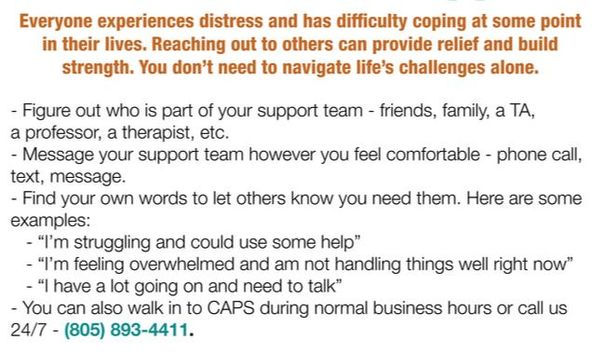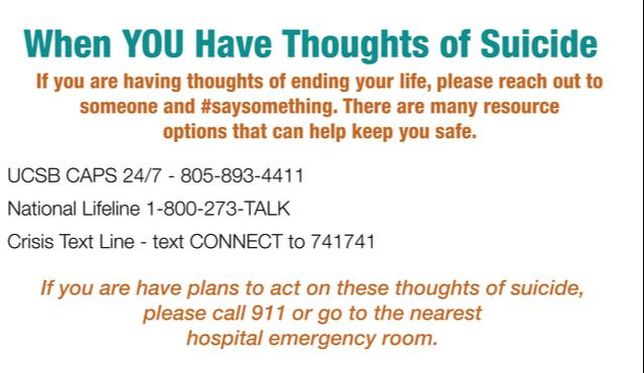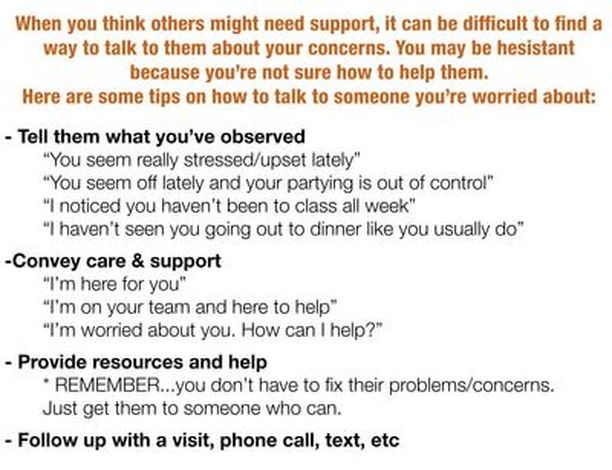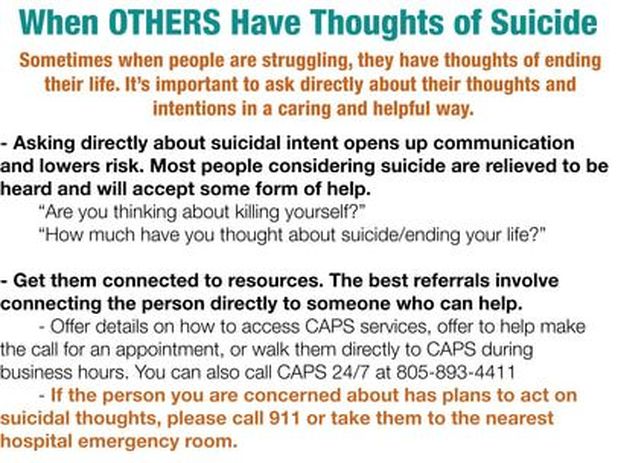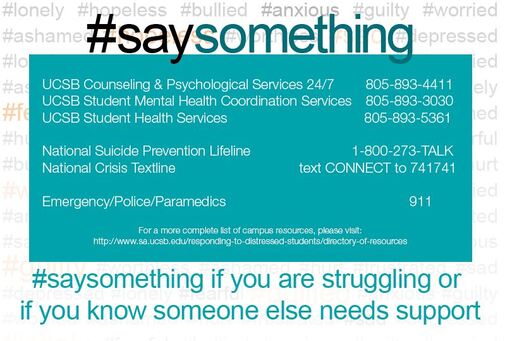***If you are in a life-threatening situation, please dial 911 immediately.
What are some events that can create distress in college students?
|
|
Why do people hesitate to tell others about their stressors or challenges? |
|
|
|
Behavioral Indicators of Distress
Verbal Indicators of Distress
|
Behavioral Indicators of Risk for Harm (To Self or Others)
Verbal Indicators of Risk for Harm
|
Showing support for another
person may save their life.
It is better to #SaySomething
than to not say anything.
If the person you are concerned about is unwilling to get support, please consider calling Student Mental Health Coordination Services at (805) 893-3030. They also have an online reporting form that you can access here. Student Mental Health Coordination Services will help you to figure out the next steps and they can reach out to the person you are concerned about.
|
Take some time to watch our audio guided Mental Health Peer created presentation on Talking to a Friend. |
|
Proudly powered by Weebly

